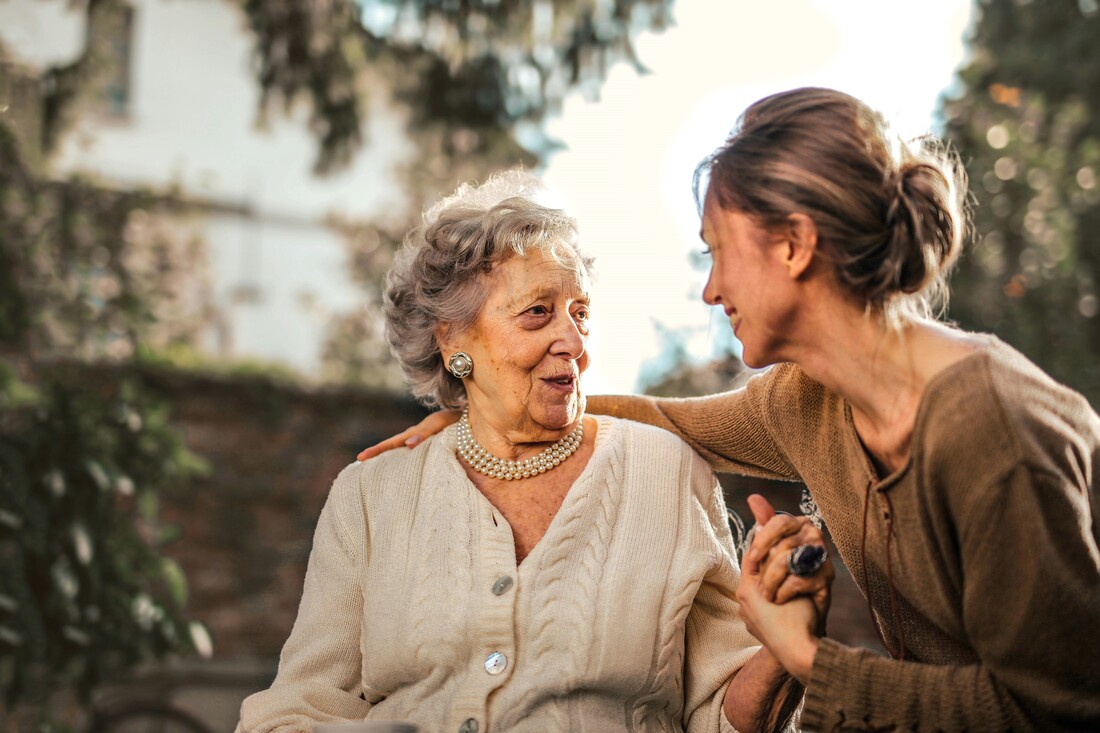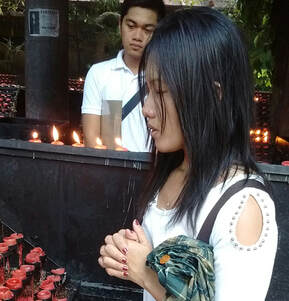|
‘Empathy is about finding echoes of another person in yourself.’ (Mohsin Hamid) I remember Deryck Sheriffs, an inspiring South African lecturer, leading a seminar on, ‘Theology and Emotion in the Psalms’. He encouraged us, as students, to consider that there’s a critical distinction between propositional truth and pastoral response. Both are important. They are often intertwined. And we need to recognise which is which when reading a text. We must pay attention to e.g. genre; context; co-text; who is speaking; nature of relationship; underlying intention. I’ve noticed parallels in all kinds of communications over the years. Confusion and tension can arise when people speak and respond in conflicting relational modes. We could broaden this principle by distinguishing between a thinking and feeling orientation. If a person speaks in feeling mode and receives a thinking-mode response (or vice versa), they may feel hurt, unheard or frustrated. Here’s an example to illustrate this point. Person 1: ‘I wish the hospital staff would speak to me directly rather than through my carers.’ Person 2 (thinking mode): ‘The staff are very busy and it’s easiest for them to speak to your carers who can then explain everything to you.’ Person 3 (feeling mode): ‘I imagine that could feel quite isolating for you. What would you like us to do?’ The latter is grounded in empathy.
10 Comments
‘The most beautiful experience we can have is the mysterious.’ (Albert Einstein) ‘According to these blood test results’, said the consultant, ‘you are dead.’ He stood at the end of my hospital bed scratching his head. ‘Clearly you’re not dead’, he continued, ‘or we wouldn’t be having this conversation. There must be an error.’ He asked a nurse to take fresh bloods and to send them off urgently to the lab. Later that day with a new report in his hand, he looked even more confused. ‘The results are the same. This is impossible.’ We looked at each other. I didn’t know what to say. I had been experiencing severe pain and blackouts, often falling unconscious without warning, and had no idea why. So now the consultant sent me for a CT scan using a radioactive dye to get a clear scan result. The dye triggered an anaphylactic reaction which nearly killed me. An attentive passing nurse pushed an oxygen mask on my face, turned it up full and ran to find a crash kit. Unfortunately, someone had removed the adrenaline jab and hadn’t replaced it. I was within 2 minutes of death. By divine coincidence, that same day my ex-wife left me and took our 2 daughters with her: some would say that when it rains, it pours… I can’t explain these strange medical mysteries yet I can, by faith, trace a rainbow through the rain. The hospital drama that distracted me from difficult home events; the nurse who recognised and responded to my crisis; the availability of specialist medical facilities and drugs to save my life; the compassion of my brother and his family who supported me throughout. When have you experienced the mysterious? ‘It’s the fundamental emotion that stands at the cradle of true art and true science.’ (Albert Einstein) ‘Not all of us can do great things. But we can do small things with great love.’ (Mother Teresa) Small things are big things in the hands of the poor. Imagine this: you live in dire poverty, in a cemetery. You and your neighbours each have only a handful of possessions – mostly a few clothes – and have nowhere to keep them clean or dry. In fact, you live life day-by-day, moment-by-moment, and have no discretionary income whatsoever. No-one sees you, and no-one helps. Then, today, a woman appears, as if out of nowhere, carrying sturdy plastic boxes and offers them to you freely, as ‘a gift from Jesus’. At first, you can’t believe it. Your face lights up as you realise: they really are for you and for your friends. A woman in your group, who hasn’t been able to hear or speak since birth, rushes to this woman, throws her arms around her neck…and cries. A box full of love. A beautiful hug. Small things are big things. We can be hope. The boy looks about 13, maybe 14, and is guiding cars into parking spaces. The sun is beating down and its steaming hot. Exhausted, he sits down against a wall for a break. This is in the Philippines last week. A poor woman from Samar, Jasmin, notices him out of the corner of her eye as she steps down off a jeepney – a mini-bus used for public transport. The boy looks weak and unwell. She walks across to him, speaks gently then reaches out and touches his face with her hand. His skin is burning with a fever. Jasmin urges him to stay there and wait for her as she rushes quickly to find a shop where she can buy medicine, food and drink. Then she returns and says she will take him home, to the slum area where he lives. She reassures him that things will be OK, that she will give his family the equivalent of what he could earn in 2 weeks, along with the food, so that he could take a rest to recover. The boy looks up at this stranger, can’t speak…and just cries. She helps him into a jeepney and honours her promise. I ask Jasmin why she has taken such a risk, to touch a person with clear signs of a fever when the Philippines is in the midst of a Covid-19 lockdown. She looks emotional now and says, quite simply, ‘I imagined how I would have felt if I was that teenager.’ She couldn’t bear to leave him alone, so very sick. She gave what little she had so that his family would not become destitute. I flash back to the parable of the good Samaritan. Jasmin loves Jesus and is willing to engage. I might well have just walked by. ‘They may forget what you said, but they will never forget how you made them feel.’ (Maya Angelou) It was a dire and inspiring experience, a hospital for children with severe disabilities in a desperately poor country under military occupation. Conditions were severe, the children were abandoned by their families and the staff were often afraid, suspecting the children were demon-possessed and, therefore, holding them disdainfully at arms’ length. A fellow volunteer, Ottmar Frank, took a starkly different stance. He was a humble follower of Jesus and I have rarely witnessed such compassion at work. I asked him what lay behind his quiet persistence and intense devotion. He said, ‘I want to love these children so much that, if one of them dies, they will know that at least one person will cry.’ Ottmar’s words and his astonishing way of being in the world still affect me deeply today; the profound impact of his presence, and how my own ‘professional’ support and care felt so cold by comparison. I remember the influence he had on others too – how, over time, some others started to emulate his prayer, patience, gentle touch and kindness – without Ottmar having said a word. It invites some important questions for leaders and people, culture and change professionals. If we are to be truly transformational in our work, how far do we role model authentic presence and humanity, seeing the value in every person and conveying through our every action and behaviour: ‘You matter’? For the first time in human history, toilet paper is worth more than real money. It’s hard not to look on with bemusement and alarm at the wild antics of desperate people, fighting in wealthy supermarket halls to grasp hold of the last packs of loo roll. My Filipino friends are utterly astonished. Whilst poor people there are struggling to hold onto their income, their ability to feed their families – and with good reasons too, here we are gripped by a selfish fear of…inconvenience. The new pandemic has its scary dimensions, but they are nothing compared to those created by sheer irrationality – whipped up into a frenzy by irresponsible, scare-mongering media, fueling the flames of terror. At times like this, we need to look outwards, not barricade ourselves inwards, to see how best we can support those who are poor and vulnerable; locally, and in the wider world. An antidote to the disease, that risks taking so much, is a yet greater and deeper humanity – to help ourselves and each other by keeping things in perspective; to see people in need and take practical, caring action in response; to pray for faith, hope and love when afraid or tempted to retreat, grab or lash out. Ask: ‘When you look back, what kind of person do you want to have been?’ Then be it…now. Are you feeling gripped by the Coronadrama? How can I help you? Get in touch! [email protected] ‘I have three things I’d like to say today. First, while you were sleeping last night, 30,000 kids died of starvation or diseases related to malnutrition. Second, most of you don’t give a shit. What’s worse is that you’re more upset with the fact that I said shit than the fact that 30,000 kids died last night.’ (Tony Campolo) The first time I heard those words some time ago, I was left speechless and reeling. Firstly, with the scale of the awfulness of the human tragedy and secondly – ashamedly – that I too was shocked to hear a Christian leader use the ‘S’ word. How easily we get distracted, preoccupied or fixated by things that really aren’t important and miss those that are. For those familiar with Jesus’ teaching, logs and splinters come sharply to mind. My last blog, ‘Whatever’, touched on a similar theme. I visited the Philippines for the first time in 2016. I had visited and worked in various other countries in South East Asia with international charities but this was a new experience for me. One day in the hot sunshine, I sat on a kerb to listen to a talented marching band practising at the roadside. I was vaguely aware of people nearby but didn’t really take much notice. My attention was fixed firmly on the rhythmic band and music and on taking video that I could show friends on returning home. After a while, I turned to speak to the young woman, a very poor Filipina, who had brought me to that place as her special guest. I was astonished to discover that she had vanished…and then even more astonished to see her with the other people, strangers, nearby. I became aware they were mostly elderly poor people trying to eke out a living by selling what little they could. This girl was on her knees, offering them the very food and drink we had brought for ourselves. I felt humbled and amazed. This experience, alongside others in the Philippines since, has inspired and rekindled my desire to ‘cut the cr*p’ in my life and to live for Someone, something worthwhile. I hate that the poor are so vulnerable. It feels like a spiritual, existential journey for me. What journey are you travelling? Who is inspiring you? What are you inspiring in others? |
Nick WrightI'm a psychological coach, trainer and OD consultant. Curious to discover how can I help you? Get in touch! Like what you read? Simply enter your email address below to receive regular blog updates!
|









 RSS Feed
RSS Feed